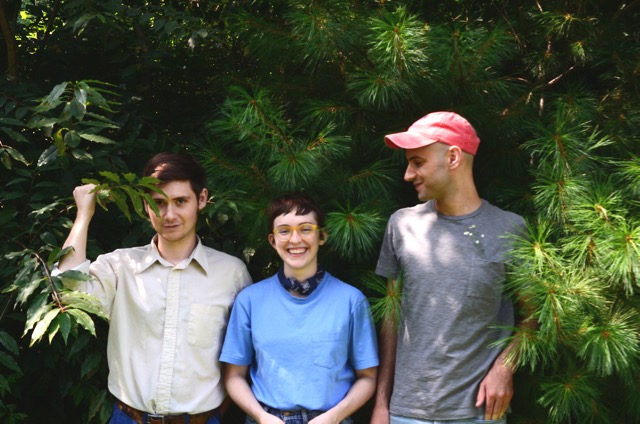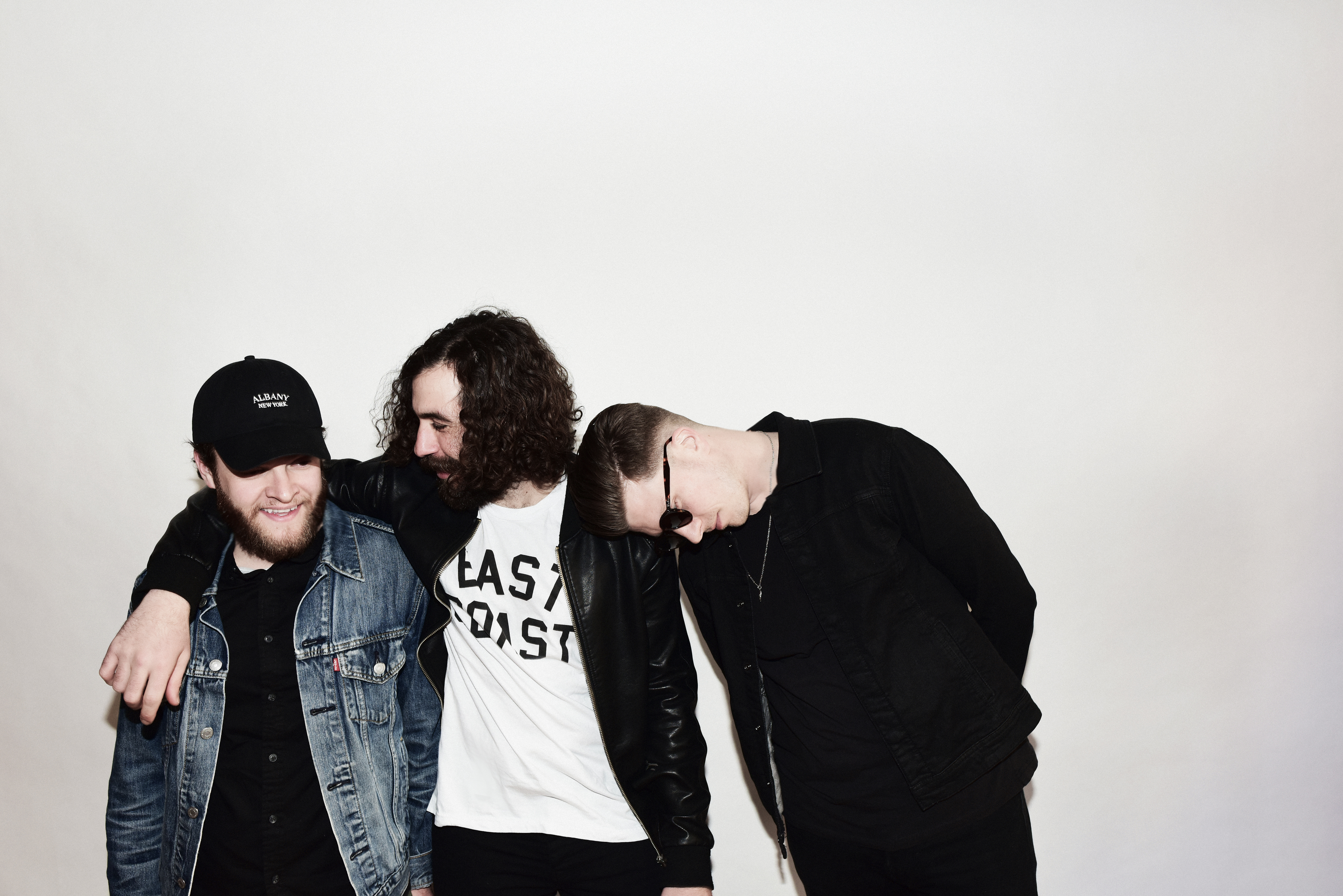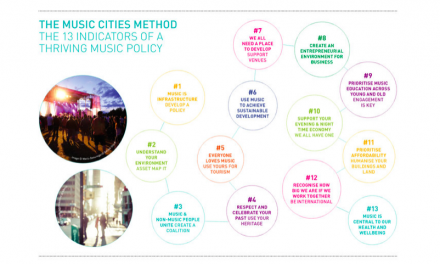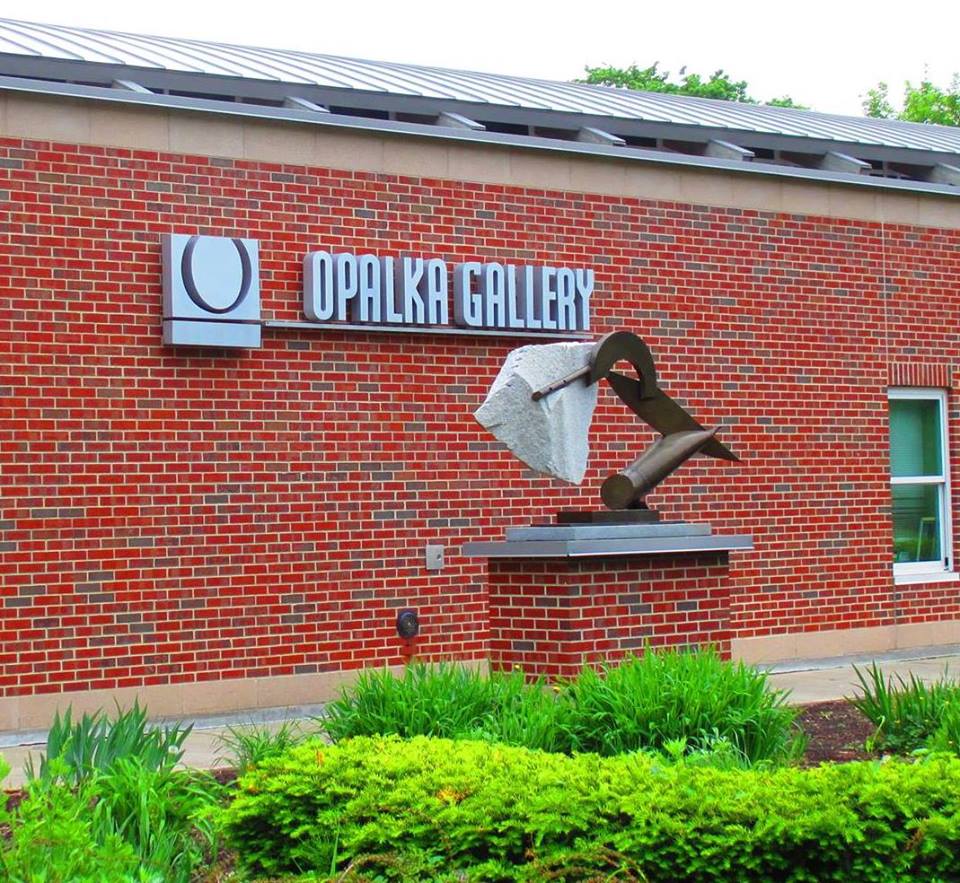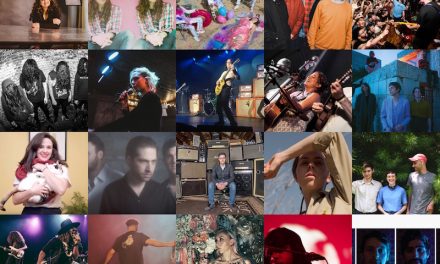Solitude has shaped Emily Sprague as both a person and an artist. The 25-year-old Catskills area native is the songwriting engine of the popular indie-folk band, Florist, and a rising star in the world of ambient music, which she produces under her own name. Both of her projects are exceptionally mellow, tender and meditative, albeit in completely different ways.
The sparse folk songs she writes in Florist are reflective, personal stories delivered with a tunefully flat and intimately whispered intonation. There’s an innate melodicism to her subdued singing style, but in the six years she’s been releasing music under the moniker, it’s never been made clear if she’s even capable of belting. She rarely raises her voice above a hushed croon, as if she’s performing her songs for herself in her own bedroom, and her listeners are lucky voyeurs who happened to put their ear to her door at just the right moment. For her, Florist songs are born of necessity.
“I do write songs because it’s something I feel like I need to do when I’m writing them,” she says during a phone call with The Collaborative. “But when I release them, I’ve had the time that I need to spend with them already. And now they’re for anybody else who wants to listen and potentially get something from them. And with the ambient stuff it’s a much lighter process. I do it because it’s something that I really enjoy doing.”
Void of lyrics and verbal narrative, the two ambient albums she’s released, “Water Memory” (2017) and “Mount Vision” (2018), are remarkably soothing collections of supple keystrokes and long, pastoral synth patterns. It’s music that stretches for aural miles without a destination in mind, capturing the naturalistic comfort one gets from gazing upon the vastness of a mountain range or the sheer liquid volume of a placid lake. Sprague’s late mother was a professional music therapist and she instilled her daughter with the value of music as a remedy—not just a form of entertainment.
“[She] was a big reason why I wanted to start making this kind of music,” Sprague says. “And I’m interested in it really only to be soothing and healing and meditative. It’s therapeutic for me and I want it to be therapeutic for other people.”
Both of her musical endeavors embrace the utilitarian function of artistic expression, which Sprague credits to the emphasis her parents put on feelings and emotions when she was growing up. As an only child in the 1,000-person town (“Town is a stretch,” she jokes) of Palenville, NY, which is technically a hamlet of the Catskills region, she spent her youth exploring the streams and woodland terrain of her surroundings all by herself. The solitary experience was something she was, and still is, comfortable with. It allowed her to obsessively cycle through hobbies and interests at her own pace and forge her own path as an outsider. Without any friends who understood her worldview as a burgeoning creative thinker, she turned to art to try and better understand herself as a human.
“I think I was raised in a way that really allowed me to have a large capacity for feeling, and taking feeling from the world,” she says. “But I think for a really long time, really until I was an adult, I never had anyone to share that with in any way. I felt very isolated in my thoughts and my feelings. . .I needed to get that out somehow, and it just very quickly revealed itself to me that music was—most art I feel really good doing—but for some reason, music is the thing that I consistently need to do and feels like the clearest channel of communication for me.”
She asked her mom to buy her an electric guitar when she was 12 years old and began taking lessons before losing interest in the rudimentary, by-the-book curriculum. A couple years later she returned to the instrument and started lessons with two “cool guitar teachers” who encouraged her to bring in songs she wanted to cover, so she could learn to play and write through the form of folk music.
“At one point I thought I would be interested in Jimi Hendrix solos or whatever, and then I started to get into Bob Dylan. I really became interested in folk music and songwriting, and I had these two guitar teachers who were really interested in that, too. They really helped me appreciate the song and learn how to play chords.”
Sprague remembers writing her first song on the ukulele when she was about 15. By then she had her own laptop and was able to record the track and begin messing with effects. Within a year, she became fixated on learning to play the keyboard. She asked her dad for a Casio SK-1, a cute, miniature sample keyboard from the ‘80s that got her started on her fascination with moogs and diverse synthesizers. “I move very fast,” she laughs. “This was a year after being like, ‘I’m writing songs on guitar now.’ I was like, ‘Okay I need to play keyboard.’”
However, at this point she was doing all of this musical discovery on her own. No one in her high school was interested in the music she was, so she was figuring out her inclinations and what she wanted out of a piece of music all by herself. “So I started finding the sound of what I liked to hear. ‘Cause whenever I would listen to songs I would listen to, like, a Brand New song, for example. That would have a quiet intro and then get loud. And the thing that I was always searching for in music was just the quiet intro.”
Sprague was able to graduate high school half-a-year early, and she immediately found herself swept up by a local Woodstock producer who was enamored with her songwriting and wanted to record her songs professionally. Ecstatic about the opportunity to pursue music right out of high school, she began recording a handful of songs with him and some session musicians before realizing that the generically rootsy direction he was taking them in was antithetical to her own weirdo vision.
“The production of the stuff I was doing with this guy was very canned,” she says. “Very straight, classic, what you would expect. It was very good but it wasn’t very interesting.”
At the same time as these sessions, Sprague was approached by Rick Spataro, a local musician who graduated from Sprague’s high school four years earlier and who was then living in Albany while studying at St. Rose. He had heard Sprague’s Myspace demo and asked if she wanted to collaborate on a project, which she excitedly agreed to. Their chemistry was instantaneous, and in practically no time at all, Spataro and his bandmate Jonnie Baker (from a different Albany project) were linked up with Sprague as her backing band. After just a couple months of playing together and preparing to enter the studio, they decided to become a bonafide band. They called themselves Florist.
“It’s my songs, it’s my songwriting,” Sprague explains. “But the way that the three of us collaborated and brought out different musical ideas from each other, we all decided that it should be a project with a moniker that represents us together. Like, something that’s more than its parts separately. It’s greater together. And Florist is that idea of: you put flowers together and you create a beautiful bouquet.”
In that whirlwind time period, Sprague moved into a house in Albany and became close with Meg Duffy, who was starting their project Hand Habits at the same time. Sprague only lived in Albany for one year, but the experiences she had there were so formative to her artistic ethos that she still considers it a home.
“When I moved to Albany, it was the first time in my life that I felt like I was around people who wanted the same things, or thought the same things,” she says.
“We played house shows with everybody up there. It was a pretty beautiful time, it was a very young music life. It was the first time in my life that I ever felt part of a community and that I ever really felt like there were people that I shared common brain space with. And I needed that so badly at that point in my life. I needed to believe that I was searching for something that existed and wasn’t just this imaginary thing.”
After Albany, Sprague and her bandmates would live in New York City for a handful of years before she bounced between her home in the Catskills, Boston and where she currently resides (indefinitely); a quiet, relatively secluded part of L.A. The upcoming third Florist LP is titled “Emily Alone,” and it’s the first set of recordings under that name to only include Sprague’s contributions. Interestingly, Sprague explains that the absence of her bandmates—who she regards as integral to what Florist is—still yielded a collaborative artistic result.
“I think that it is collaboration, depending on what you believe in. People’s energy I think can be there whether or not they’re physically manifested around you. The album exists the way that it does because Florist is a project about our lives together. At this point, it’s a documentary, it’s a family, it’s something that’s gonna keep growing and shifting. And ‘Emily Alone’ just documents this time in life when we were apart from each other, so the project sounds like this.”
Right in the hook of album opener “As Alone,” Sprague sings, “And Emily just know that you’re not as alone / as you feel in the dark.” It’s unclear whether she’s talking to herself or quoting someone else’s reassurance, and going by what she said about the lasting influence of collaboration, I think that’s the point.
Florist plays The Church in Troy on August 8 at 6:30 PM

